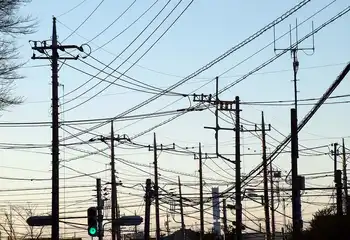Solar car completes first ever round-world trip
By Associated Press
CSA Z463 Electrical Maintenance
Our customized live online or in‑person group training can be delivered to your staff at your location.

- Live Online
- 6 hours Instructor-led
- Group Training Available
The small two-seater – made from aluminum and fibreglass – hauled a trailer of solar cells and U.N. climate chief Yvo de Boer up to a building in Poznan where delegates from some 190 nations are working toward a new treaty to control climate change.
"This is the first time in history that a solar-powered car has traveled all the way around the world without using a single drop of petrol," said Louis Palmer, the 36-year-old Swiss schoolteacher and adventurer who made the trip.
"These new technologies are ready," he said. "It's ecological, it's economical, it is absolutely reliable. We can stop global warning.''
The car travels up to 90 km/h and covers 300 kilometres on a fully charged battery.
Palmer's appearance at the conference came after a 52,000-kilometre journey that began 17 months ago in Lucerne, Switzerland, and took him through 38 countries.
He calls the vehicle, developed by scientists from Swiss universities, a "solar taxi" because he has given rides to some 1,000 people to convince them of the technology's viability. Passengers have included New York City Mayor Michael Bloomberg and U.N. Secretary-General Ban Ki-moon.
He took an Associated Press reporter for a short drive to demonstrate how similar the vehicle is to a regular gas-powered car.
Designed like a race car, it can hold two people comfortably but, fittingly, it lacks climate control.
Palmer flipped a switch to activate the battery-powered electric engine, which produced a soft hum, and then guided it smoothly down a street.
Featuring all the standard safety features – headlights, brakes, blinkers – the car is fully "road worthy," Palmer said. He lost only two days to breakdowns during the entire world journey.
"This car runs like a Swiss clock," he said.
Palmer said the prototype would have to improved before it could be mass-produced, but his point was to show that a pollution-free car could be a reality.
Delegates in Poznan are seeking an ambitious new climate treaty that would replace the Kyoto Protocol, which expires in 2012 and has required that 37 countries slash emissions of heat-trapping gases by an average 5 per cent from 1990 levels.
The goal is for the new treaty to be finalized at the next U.N. climate meeting in December 2009 in Copenhagen, Denmark.
"Here at the conference, we are talking about reducing emissions by 10 or 20 per cent," Palmer said. "I want to show that we can reduce emissions by 100 per cent – and that's what we need for the future."











